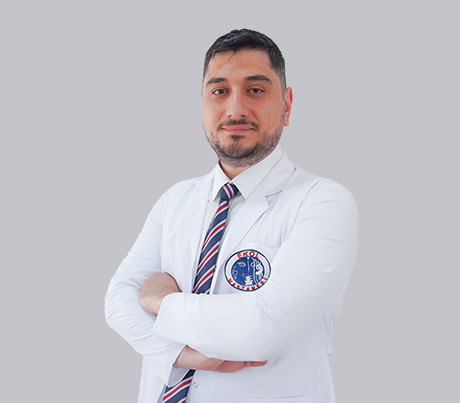
Tongue Cancer
Tongue cancer is the most common type of cancer among oral cancers, usually occurring on the undersurface, sides or back of the tongue.
Symptoms of tongue cancer may include pain in the tongue, difficulty swallowing, swelling of the tongue, white and red spots on the tongue, and pain in the ear.
Causes of tongue cancer include smoking, alcohol consumption, HPV infection, lack of oral hygiene, frequent consumption of spicy foods and genetic factors.
Treatment for tongue cancer may vary depending on the type of cancer, its spread and the patient's general health. Treatment options may include surgery, radiotherapy, chemotherapy and immunotherapy.
Some cancer types exist in different places in the body, and tongue cancer is one of them. It is also called oral cancer and means the cancerous malignant cells around the tongue along with the surface.
It can occur partially or may affect the whole tongue, which differs from patient to patient but the most known and common form is called squamous cell carcinoma.
In this article, we will take a closer look at tongue cancer, treatment options, risk factors, and more additional information in general.
Causes of Tongue CancerCertain causes of cancer including tongue cancer are not fully known, but some factors can increase the risk, such as:
- Smoking: Smoking or tobacco use can highly increase the risk of not only tongue cancer but other cancer forms as well. The harmful chemicals in tobacco affect the tongue.
- Alcohol consumption: Excessive alcohol consumption would be heavy on the tongue and can increase the risk.
- Genetic factors: Family history and genetic factors may increase the risk of tongue cancer.
Early detection and diagnosis are important to learn about tongue cancer and decide the proper treatment. Symptoms may vary from patient to patient but generally can be listed as:
- Constant pain in the tongue: The constant and reason-unknown pain that continues for a long time may be a sign of tongue cancer. Persistent pain or discomfort around the mouth can be also a sign.
- Ulcers or sores on the tongue: These sores may be red and swollen while ulcers may indicate tongue cancer. Observing is essential.
- Color change in tongue: The sudden color change in the tongue may be a sign.
The treatment options for tongue cancer might differ from patient to patient, the situation and health of the patient, the stage of cancer, and the size & location of the tumor. Some combined treatments can be applied but the options including:
- Surgery: Surgery is the first option for tongue cancer. The tumor is aimed to be removed by surgery or incision. The type of surgery and methods might vary.
- Radiation therapy: In the early stage, radiation therapy can be used to kill cancerous cells.
The suitable treatment option would be shaped according to the course of the cancer, the situation of the patient, medical history, and more.
Recovery and Rehabilitation After Tongue Cancer TreatmentRecovery and rehabilitation are essential after tongue cancer treatment to make patients’ physical and mental needs easier. These can be helpful tips:
- Therapy for swallowing and speech: Tongue cancer can cause difficulty in speaking and eating & drinking since it affects the tongue anatomy. Therefore, some specialists can provide therapy to increase function.
- Dental health: The overall oral health along with dental health should be followed and supported after the treatment.
- Mental support: Along with physical therapy, mental support is also needed after tongue cancer treatment since the whole process can affect mental health easily.
Prevention and risk reduction strategies for tongue cancer include various options. Even though it is not possible to prevent the whole case, some habits can help you with prevention:
- Avoid smoking and alcohol consumption: Avoid using tobacco products and excessive consumption of alcohol can help the prevention.
- Healthy diet: Eating a balanced and healthy diet can help with reducing various types of cancer including tongue cancer, along with staying hydrated.
OUR DOCTORS
 Date of birth 10.11.1987 Education and Expertise Karadeniz Technical University Faculty of Medicine Kocatepe University Ankara University Faculty of Medicine Konya Health Sciences University Professional Interests: Obesity (fatness) surgery and metabolic surgery Laparoscopic reflux surgery Laparoscopic gallbladder surgeries Gastric balloon application ERCP, EMR, ESD (Advanced Endoscopic procedures) Laparoscopic pancreatic cancer surgery Laparoscopic gastric and intestinal cancer surgeries Hemorrhoid surgeries Perianal fistula surgeries Laparoscopic abdominal and inguinal hernia surgeries Oncoplastic Breast cancer surgeries Natural cancer surgery (NOSE) Thyroid cancer and goiter surgeries. Memberships to Scientific Organizations Turkish Surgery Association Turkish Obesity Surgery Association Surgical Oncology Association National Society of Endoscopic Laparoscopic Surgery He is a member of the Bariatric and Metabolic Surgery Association. Courses and Certificates: Turkish surgical association proficiency exam (Board) certificate of achievement in 2018 He has more than 100 papers presented in national and international congresses and more than 50 articles published in international journals. Foreign language English
Date of birth 10.11.1987 Education and Expertise Karadeniz Technical University Faculty of Medicine Kocatepe University Ankara University Faculty of Medicine Konya Health Sciences University Professional Interests: Obesity (fatness) surgery and metabolic surgery Laparoscopic reflux surgery Laparoscopic gallbladder surgeries Gastric balloon application ERCP, EMR, ESD (Advanced Endoscopic procedures) Laparoscopic pancreatic cancer surgery Laparoscopic gastric and intestinal cancer surgeries Hemorrhoid surgeries Perianal fistula surgeries Laparoscopic abdominal and inguinal hernia surgeries Oncoplastic Breast cancer surgeries Natural cancer surgery (NOSE) Thyroid cancer and goiter surgeries. Memberships to Scientific Organizations Turkish Surgery Association Turkish Obesity Surgery Association Surgical Oncology Association National Society of Endoscopic Laparoscopic Surgery He is a member of the Bariatric and Metabolic Surgery Association. Courses and Certificates: Turkish surgical association proficiency exam (Board) certificate of achievement in 2018 He has more than 100 papers presented in national and international congresses and more than 50 articles published in international journals. Foreign language English 










